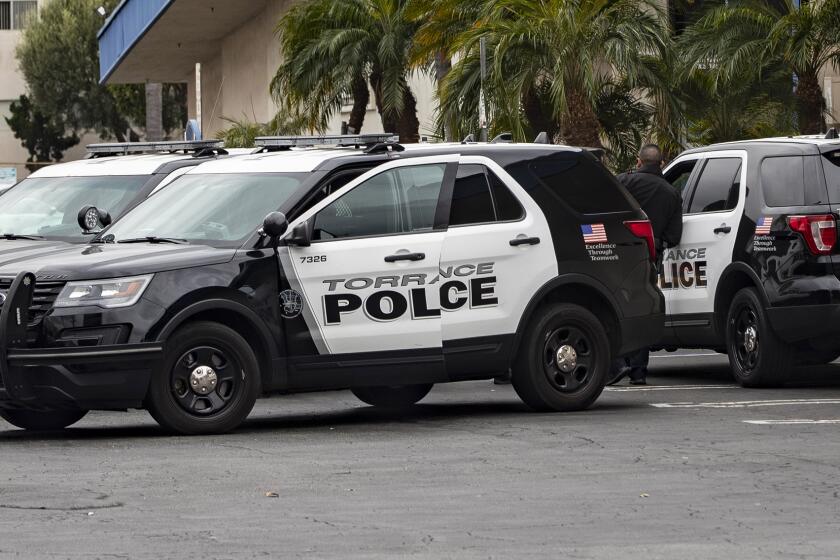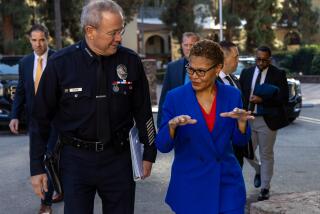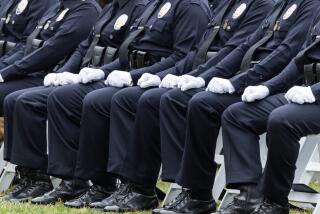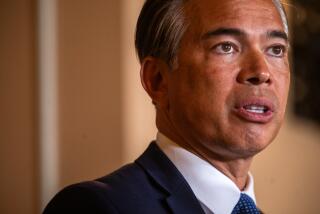California attorney general to investigate Torrance police after racist text scandal
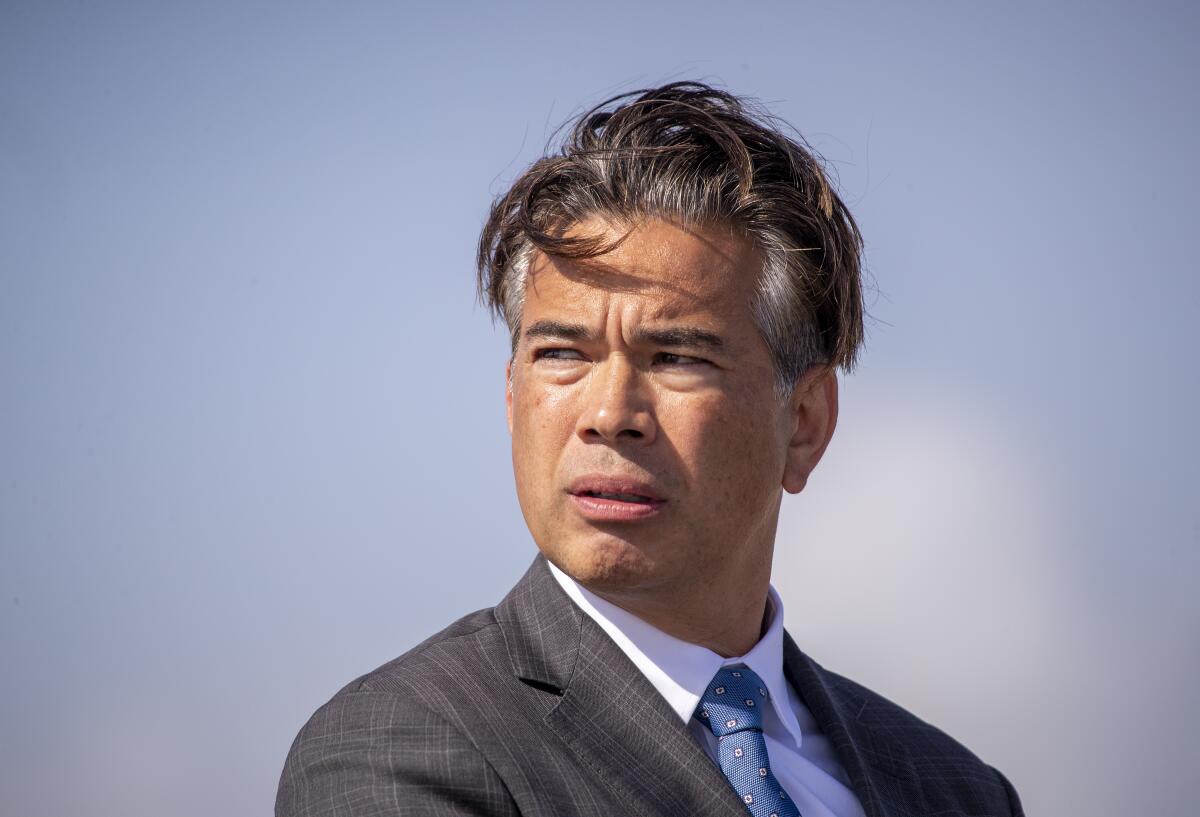
California Atty. Gen. Rob Bonta said Wednesday his office will investigate the Torrance Police Department in the wake of a scandal that revealed more than a dozen police officers had exchanged racist text messages for years, joked about using violence against suspects and mocked the idea that internal affairs might catch them.
In an interview with The Times, Bonta said that while the texts would be at the “heart” of any investigation, the probe will be broad in scope and could include policy reviews and, if necessary, criminal charges against individual officers.
“The reports are very disturbing and we are committed to going wherever the facts lead and making sure we remedy the situation and get the Torrance Police Department on a corrective course of action,” he said.
The announcement came hours after The Times published an investigation revealing more than a dozen Torrance police officers had exchanged racist and antisemitic texts and images which were recently uncovered as part of a criminal investigation into two former officers. Bonta’s review, however, had been in the works before The Times story was published.
The Times has identified a dozen Torrance police officers who are under investigation for sharing racist and homophobic text messages and images.
Through interviews with sources with direct knowledge of the case and a review of district attorney’s office records, The Times identified 13 current and former Torrance police officers, and one Long Beach cop, who are under investigation as part of the scandal. Records reviewed by The Times showed at least nine of the officers shared texts or images that championed violence against Black people and members of the LGBTQ community, joked about beating up suspects and mocked the idea of internal affairs investigations into racial profiling.
Fifteen officers are currently on administrative leave, according to Sgt. Mark Ponegalek, a Torrance police spokesman. The officers identified by The Times were involved in at least seven serious or fatal uses of force against Black or Latino men since 2013.
The officers identified in The Times article on Wednesday did not respond to multiple requests for comment.
The existence of the scandal came to light earlier this year as the Los Angeles County district attorney’s office was weighing criminal charges against two former officers, Cody Weldin and Christopher Tomsic, who allegedly spray-painted a swastika inside a vehicle they ordered to be towed in January 2020.
Weldin and Tomsic were charged with conspiracy and vandalism in August. Both have pleaded not guilty. A third officer under investigation in the scandal, David Chandler, has been charged with assault for a 2018 shooting of an armed man who was having a mental health crisis.
A joint investigation by Torrance Police and the district attorney’s office led to the discovery of the text messages. Torrance Police have already hired an outside law firm to conduct a review of the scandal, and Chief Jeremiah Hart said he asked the attorney general’s office for assistance after the hateful messages were uncovered.
“I am committed to accountability, and I will not tolerate any form of bigotry, racism, hate, or misconduct,” Hart said in a statement. “In partnership with Attorney General Bonta, I will ensure that needed changes are implemented to regain the public’s trust and confidence.”
Bonta described the investigation as a “targeted reform effort,” unlike the investigation launched into the Los Angeles County Sheriff’s Department earlier this year. While Bonta said the Torrance review will be collaborative in nature, owing to Hart’s request for help, reviews like that of the sheriff’s department are “pattern or practice” investigations where the office is using its legal authority to potentially seek court-mandated reforms.
Still, Bonta said, he is prepared to stiffen his approach if his investigators meet pushback.
“There will be people who resist. And it’s not collaborative with those folks,” he said. “It won’t stop us from getting all the information … it’s not one big monolith. It’s not like we’re cooperating with all or that we’re averse to all.”
More to Read
Sign up for Essential California
The most important California stories and recommendations in your inbox every morning.
You may occasionally receive promotional content from the Los Angeles Times.
